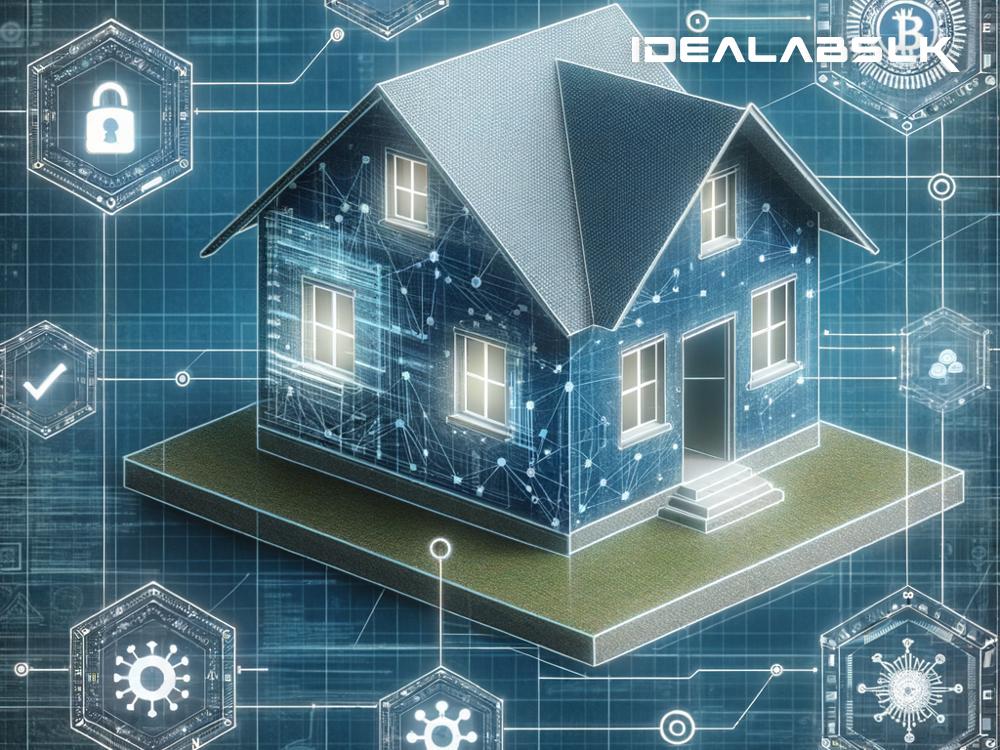Unlocking the Future: How Blockchain is Revolutionizing Real Estate Transactions
In today’s fast-paced world, technology is playing a pivotal role in reshaping industries, and real estate is no exception. Among the myriad of technological advancements, blockchain stands out as a key player in transforming how real estate transactions are monitored, managed, and executed. But what exactly is blockchain, and how is it paving the way for a revolution in the real estate sector? Let's break it down in simple terms.
What is Blockchain?
Imagine a ledger that's not kept in one place like a traditional book or a database on a computer, but instead, copies of it exist across numerous devices worldwide. This ledger is transparent, secure, and updates in real-time. This is the essence of blockchain technology. It's a series of interconnected data blocks that ensure security and transparency in transactions. Originally devised for digital currency transactions, blockchain has found a promising application in the real estate sector.
Transforming Real Estate Transactions
Real estate transactions have traditionally been complex, lengthy, and paper-intensive processes. They involve multiple parties, including buyers, sellers, agents, lawyers, and banks, making them cumbersome and prone to errors and fraud. Enter blockchain technology, which offers a transparent, efficient, and secure way of conducting transactions that can dramatically alter this landscape.
The Benefits of Blockchain in Real Estate
-
Transparency and Security: Blockchain provides a transparent and unalterable record of every transaction. Once a transaction is recorded, it's virtually impossible to change, reducing the risk of fraud. This transparency builds trust among all parties involved.
-
Streamlined Transactions: Through smart contracts — self-executing contracts with the terms directly written into code — blockchain can automate and speed up the real estate transaction process. This means quicker closings and less paperwork.
-
Reduced Costs: By eliminating intermediaries such as banks and lawyers from the transaction process, blockchain can significantly reduce transaction costs. This makes the whole process more efficient and less expensive for everyone involved.
-
Improved Accuracy: With blockchain, the property history, including title details, previous transactions, and disputes, if any, can be stored securely. This reduces the likelihood of errors and disputes over ownership.
Real-World Applications
So how is blockchain being used in the real estate industry today? Let’s explore a few applications:
-
Tokenization: This involves turning real estate assets into digital tokens that can be bought and sold on blockchain platforms. It opens up investment opportunities to a broader range of investors, making the market more inclusive.
-
Property Management: From signing leases to managing property-related payments, blockchain can automate these processes through smart contracts. This not only speeds up transactions but also ensures transparency and efficiency.
-
Land Registry and Title Management: Several countries are experimenting with blockchain for land registry. Sweden, for instance, has tested a blockchain system for recording property transactions, which can significantly reduce fraud and speed up transactions.
-
Fractional Ownership: Blockchain enables multiple investors to own fractions of a property, making real estate investment more accessible and diversified.
Challenges and Future Outlook
Despite its potential, blockchain in real estate is not without its challenges. Regulatory hurdles, lack of understanding, and the need for large-scale industry adoption are some of the barriers that need to be overcome. However, as technology evolves and stakeholders become more blockchain-savvy, these challenges are expected to diminish.
The future of blockchain in real estate looks promising. As more real estate transactions are executed on blockchain platforms, we could see a more transparent, efficient, and secure real estate market. While it's still early days, the potential for blockchain to transform this age-old industry is vast.
Real estate professionals, investors, and even everyday homebuyers and sellers stand to benefit from the blockchain revolution. As we move forward, embracing this technology could lead to a more inclusive, fair, and efficient real estate market for everyone involved. The blockchain real estate revolution is just beginning, and it’s set to change the game forever.

